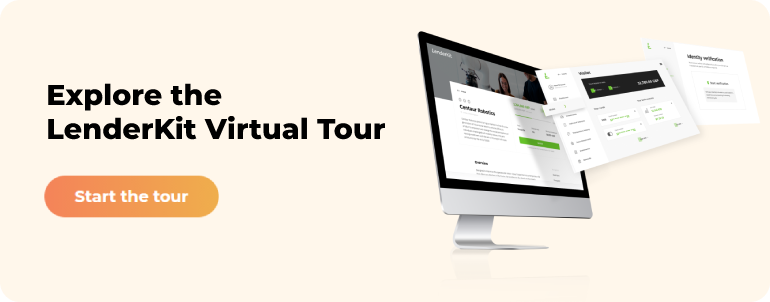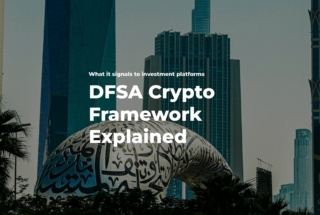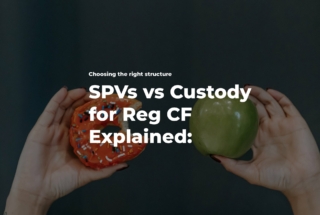Blockchain Crowdfunding Use Cases
No time to read? Let AI give you a quick summary of this article.
Blockchain is a unique, transparent, and independent system. It keeps all the transactions between parties transparent. Crowdfunding is based on trust between investors and fundraisers. It looks like both can benefit one from another, and blockchain seems to be a perfect technology for crowdfunding.
In this article, we’ll explore what crowdfunding platforms use blockchain, whether blockchain can be in any way beneficial for the industry, and what are the main obstacles in applying blockchain solutions in the crowdfunding sector.
What you will learn in this post:
Blockchain crowdfunding platforms
First, let us have a look at the platforms where blockchain is used for crowdfunding purposes.
RealT
RealT1 is a blockchain-powered real-estate crowdfunding platform. It enables investors around the globe to buy a share in US real estate. Ownership of each property is distributed in the form of representative tokens.
QuantmRE
QuantmRE2 is another blockchain-powered equity crowdfunding platform. It offers its users to invest in the equity of hand-picked residential homes. The company highlights that they take a share in the possible home appreciation and shares the loss if the home depreciates.
Tecra Space
Tecra Space3 is a blockchain-based crowdfunding platform that utilizes its own coin TecraCoin as a means of payment in the Tecra ecosystem.
The platform facilitates fundraising for high-tech projects by enabling investors to participate in the implementation of promising ideas and profit from projects commercialization.
Kick
Kick.io4 is a project accelerator and a Cardano-based crowdfunding platform. The platform leverages DeFi benefits to offer transparent and fully decentralized crowdfunding services.
The funds raised on the platform are distributed directly to projects, however, tokens may be in vesting for a specific period.
LenderKit
LenderKit is a white-label crowdfunding software that allows you to launch a crowdfunding platform tailored to your business needs. While LenderKit doesn’t run on the blockchain, it uses Polymath5 for tokenized offerings. Prior to token issuing, the KYC is required from the Polymath side.

How can crowdfunding benefit from blockchain technology?
Now, when blockchain and crowdfunding are growing in popularity, it seems that it might be highly beneficial to build a blockchain crowdfunding platform. And indeed, blockchain provides many benefits to the crowdfunding business6.
Decentralization and transparency
Decentralization and transparency are the core benefits of the blockchain.
Decentralization means that the blockchain is not managed by a single authority. Therefore, investors are not limited by location, regulations, or anything else. They can interact directly with the fundraisers and invest in projects that seem to be more promising.
All the transactions on the blockchain are completely transparent because everybody dealing with a token can review all the transactions in which the token was involved. A token also provides such important data as the ownership rights of the company or person you want to deal with – it can help you to make your investment decisions wisely.
Accessibility
Traditional crowdfunding platforms are regulated. They can operate based on specific rules7 and only in a permitted location. Investors can invest amounts depending on their income or property value. While it all is done to reduce the risk of losses and protect investors, many would find these limitations irritating.
Blockchain technology enables people from all over the world to invest as much as they want into projects they like. Using blockchain technology would allow a crowdfunding platform to attract more investors and fundraisers with various projects.
Tokenization
Tokenization is another benefit of blockchain-based crowdfunding. Tokenization is a process when an asset or its part is converted into a token that can be moved, recorded, or stored on the blockchain. For example, a part of real estate value is converted into a token, and the token can be transferred and manipulated on the blockchain.
While now, tokenization in crowdfunding is limited to real estate, with time, it might be extended to other crowdfunding types. The potential of tokenization is unlimited, anything can be converted into tokens, and the application of blockchain makes transactions with tokens easy and cheap. Moreover, tokens are divisible into smaller units which lowers the entry-level for investors.
Automation with smart contracts
Crypto crowdfunding platforms use smart contracts to automate all the processes. Smart contracts are programs or transaction protocols that execute automatically when predetermined conditions are met. Along with operations automation, the application of smart contracts allows achieving legal compliance for transactions performed within a platform.
Also read: Smart Contracts in CrowdfundingBlockchain regulations and crowdfunding
It looks like blockchain can be a perfect base to develop crowdfunding platforms. However, as we have seen, there are just a couple of crowdfunding crypto platforms. It means that there are some problems with blockchain in crowdfunding, and these problems are related to regulation.
Even though achieving legal compliance of every single transaction on a crowdfunding platform is easy by applying smart contracts, using blockchain might expose a platform to regulatory uncertainty. It is because many governments and regulators are just exploring the blockchain and trying to understand whether certain regulations shall be created to deal with decentralization.
While there are regulatory norms on cryptocurrency8, certain laws about the blockchain are absent. Therefore, there are some considerations9 that shall be addressed by blockchain crowdfunding platforms from a legal standpoint.
Jurisdiction
Blockchain crosses the jurisdictional boundaries because the blockchain nodes can be located in any part of the world. While there are some regulatory regimes such as General Data Protection Regulation, or GDPR10, every blockchain-based platform user shall check whether they can be subject to local laws if such exist.
Participants’ roles in the blockchain network
The blockchain participants are the following:
- A network operator is responsible for drafting contractual arrangements.
- Technology partners provide a sustainable technology platform.
- Infrastructure nodes facilitate the financial infrastructure.
All these participants can be located in and operate from different parts of the world. It is their responsibility to ensure their activities comply with regulatory requirements valid in their locations and receive any permissions and licenses needed to operate.
Nature of transactions
It is important for the network operators and participants to understand the nature of transactions that take place on the network. For example, P2P, debt and equity crowdfunding platforms are regulated heavily, and thus, transactions on such platforms fall within the scope of legislative and regulatory requirements.
On the other hand, there is no clarity on cryptocurrency. They classify differently in different locations, and in some places, cryptocurrency is illegal. It leads to possible regulatory re-characterization risk, and it also shall be considered when launching a blockchain-based crowdfunding platform.
Bottom line
While blockchain has the potential to be applied in the crowdfunding industry, for now, just a few platforms use the technology for crowdfunding purposes. It happens because there are still many challenges to tackle, including regulatory matters.
For those who do not want to worry about regulatory details, LenderKit offers a white-label crowdfunding software that is customized to the USA, European or Islamic traditional crowdfunding regulations. Any third-party service can be integrated to enhance your daily operations and allow for more complex automation.

Article sources:
- RealT
- QuantmRE
- Tecra Space - Blockchain Fundraising Platform
- Kick.io
- Polymath | Tokenizing the Global Financial System
- PDF (https://www.dpublication.com/wp-content/uploads/2021/08/F6-8416.pdf)
- Blockchain - legal and regulatory framework | Shaping Europe’s digital future
- Carriages preview | Legislative Train Schedule
- Some considerations
- General Data Protection Regulation (GDPR) – Legal Text



